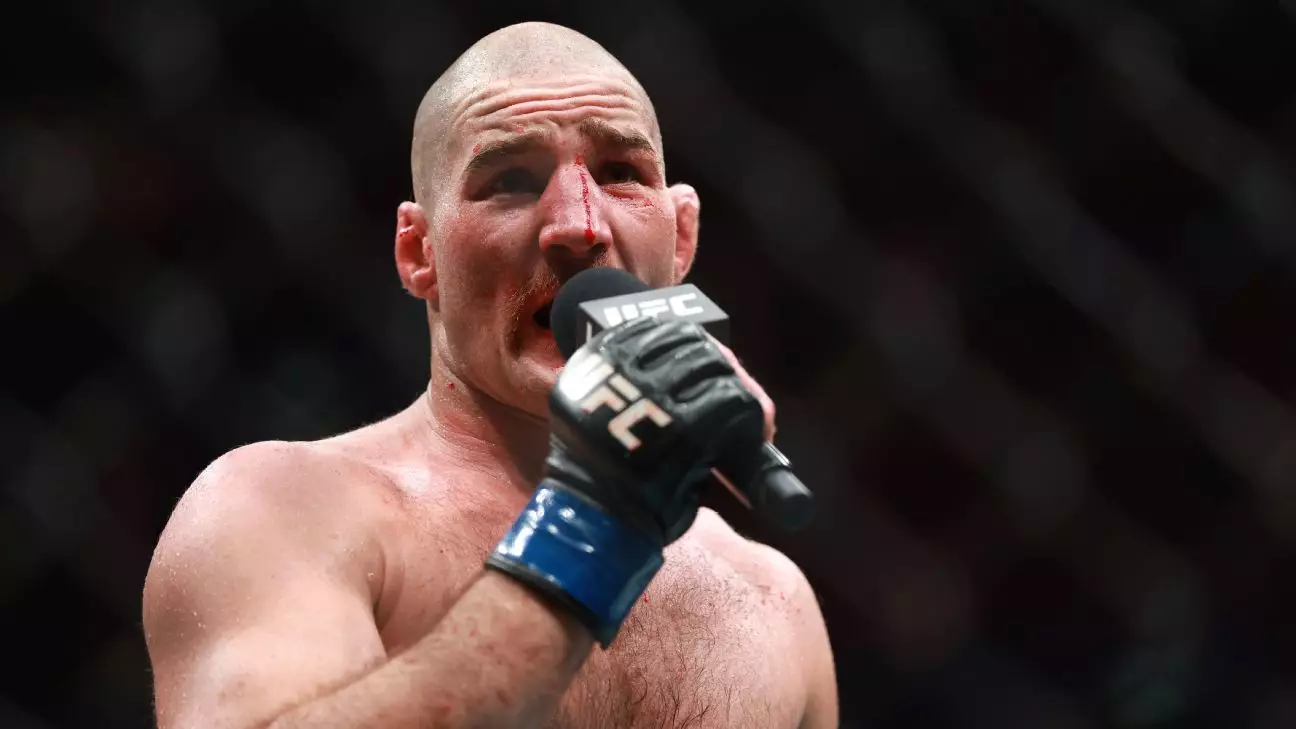The relationship between a fighter and their coach is ostensibly pivotal in the realm of professional combat sports. Successfully navigating this bond can dictate an athlete’s trajectory, deeply influencing performance inside the Octagon. Recent developments involving former UFC middleweight champion Sean Strickland serve as a striking case study of the complexities associated with such relationships, particularly when public criticism intrudes upon private concerns.
In the wake of a disheartening loss to Dricus Du Plessis at UFC 312, Strickland publicly vocalized his discontent with his coach Eric Nicksick’s critiques. After the bout—a decisive defeat highlighted by scoring that read 50-45, 50-45, and 49-46—Nicksick candidly remarked that Strickland’s performance fell short of expectations. Describing it as „underwhelming,“ and likening Strickland’s demeanor in the Octagon to “sleepwalking,” Nicksick’s comments appear to have propelled a wedge between the two, raising questions about motivation and commitment.
Strickland’s response on social media laid bare his frustrations, indicating that Nicksick would „probably not“ be in his corner again. This declaration underscores an essential nuance in their professional relationship—a divergence between a coach’s expectations for excellence and a fighter’s personal struggles. The inherent pressure of being a top performer can manifest in various ways, often leading to intense scrutiny and differing perceptions of what constitutes an acceptable level of performance.
Nicksick’s choice to voice his disappointment publicly is particularly revealing. Coaches, ideally mentors and supporters, must balance honesty with constructive feedback. However, when critiques spill into the public sphere, they can have far-reaching implications. Athletes are inevitably subject to heightened media scrutiny as they navigate the fallout. In Strickland’s case, his defensive response was likely not just about protecting reputation but also about reaffirming his identity as a fighter who perseveres in the face of adversity.
Strickland’s video highlighted a vital aspect of his preparation: a broken arm, which he pushed through despite significant physical limitations, as well as a reported staph infection that compromised his readiness. His narrative challenges the simplistic interpretation of fight performance—it’s not solely about the result but about the entirety of the fighter’s journey. Strickland emphasized that he did not „quit“ in the face of injury, demonstrating a resolve familiar among fighters but often overlooked by those outside the sport.
At its core, this situation underscores an important dynamic: the balance of accountability and support within the fighter-coach relationship. Coaches like Nicksick are charged with guiding athletes toward victory, yet they also bear the responsibility of nurturing their fighters‘ mental fortitude. Publicly calling into question a fighter’s dedication may yield momentary clarity; however, it also risks alienation. For Strickland, the implications of Nicksick’s words may lead to a reevaluation of his support system, notwithstanding the camaraderie they had nurtured in training.
In combat sports, accountability is crucial. Coaches aim to instill a sense of responsibility in fighters, driving them to improve and push boundaries. Yet, a pitfall arises when criticism turns into public speculation about motivations. This scenario invites the broader question: How should coaches communicate disappointment without causing irreparable harm to a fighter’s psyche?
Strickland’s comments in the aftermath of UFC 312 signal not only a possible reshuffling of his corner but also a broader contemplation of his career path. The relationship between coach and athlete is a delicate dance of mutual respect and expected outcomes. Strickland acknowledged that there are “so many great guys” in Xtreme Couture who could support him, suggesting a readiness to explore new dynamics in training.
Ultimately, this situation serves as a poignant reminder of the deeply personal nature of the fight experience in professional sports. Each athlete carries unique struggles that extend beyond the canvas of the Octagon. How coaches approach these realities can fundamentally reshape careers, pushing fighters toward greatness or leading them to seek solace in new alliances. In the high-stakes world of mixed martial arts, nurturing robust, supportive relationships may prove as critical to success as the technical skills required to compete.


Napsat komentář